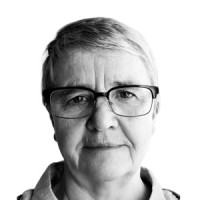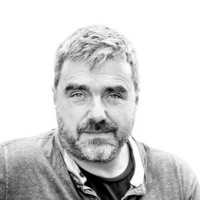Growth is also political
If we want to combat oppression, it is not enough to identify, denounce and oppose the tyrant authorities, as history has consistently shown us. It is necessary to pay attention to a mass that so easily accepts the power of these authorities, because it is in the character of the subordinates, as La Boetie warned us, one of the most important factors in understanding oppression.
Wilhelm Reich saw the need to investigate the phenomenon of oppression also from a psychological perspective, and contributed decisively to social and political psychology in the 1930s of the last century, when he wrote the book Psychology of the Mass of Fascism. In it he tried to show that one of the main keys to Hitler's triumph was in people's psychology, giving revolutionaries an important lesson that we have not yet used correctly: the radical manipulation of people's psychology is one of the most powerful weapons of (authoritarian) power, which is to carve the mind of the mass according to specific interests.
"You have to create a structural emotional dependency on a person. And for that, in the early years of life, we usually use a fine engineering of growth that we offer to children."
All societies try to create in future generations the psychological profile necessary to promote this model of society. And because the psychological configuration of the adult is based on childhood, education is the most effective tool that a system uses: a design of the ideal person is made that determines the psychological characteristics that must be incorporated or extracted in a child.
In a society like ours, the main goal is that we are not able to live freely, because those who are not able to live as their own authority will necessarily need the leadership of another person, and this is especially convenient. The Education Directive has been developed for this purpose, losing confidence in ourselves and failing to live in accordance with our principles, so that we can learn to live in accordance with other interests and get used to it. That is the core of the hidden curriculum of
escuela.Esta education is not, of course, an activity that can be carried out without causing harm to children. If they are healthy, and they have enough strength to do so, they will always put a resistance against which a different level of violence will be imposed (and justified). Instructive education implicitly carries an amount of violence.
However, to avoid psychological sovereignty, it is necessary to create a structural emotional dependence on a person. And for that, in the early years of life, we tend to use a fine engineering of growth that we offer to children, much more effective than school education. Not letting a child decide when to breastfeed, when he or she wants to arm, or when he or she will be removed from the diaper is a common, but standardized pediatric practice that is not as neutral or harmless as it is believed. To atrophy our intrinsic ability to freely manage our reality has as a consequence the sowing of dependency in our own biology, which is not up to us to make decisions on important issues, learning from the very beginning.
Education is an activity in the field of policy, but more so in terms of growth. Because through it we will be able to install an interested lifestyle according to the societal regulation, or self-regulation (and self-government), which is the basis of freedom. Faced with indoctrination, we must have an impact on education and on the changes needed to make people psychologically strong (and free).
Bidali zure iritzi artikuluak iritzia@argia.eus helbide elektronikora
ARGIAk ez du zertan bat etorri artikuluen edukiarekin. Idatzien gehienezko luzera 4.500 karakterekoa da (espazioak barne). Idazkera aldetik gutxieneko zuzentasun bat beharrezkoa da: batetik, ARGIAk ezin du hartu zuzenketa sakona egiteko lanik; bestetik, egitekotan edukia nahi gabe aldatzeko arriskua dago. ARGIAk azaleko zuzenketak edo moldaketak egingo dizkie artikuluei, behar izanez gero.
Bost urte igaro dira pandemiaren hasieratik. Pandemia horrek ekarri zuen denok zaintza eredua ezagutzea, inondik inora ere behar bezala ez zebilena. Egoitzetako kutsatzeen eta hildakoen datuak, batez ere pribatuetan, zifra hutsak baino askoz gehiago izan ziren.
2020ko... [+]
Duela aste batzuk, gurean egon ziren El Salvadorko eta Kanarietako emakumeen eskubideen aldeko hainbat aktibista. Sexu- eta ugalketa-eskubideez eta eskubide horiek urratzeak emakumeengan dituen ondorioez aritu gara; hala nola El Salvadorren berezko abortuak izanda homizidio... [+]
Tasa edo zerga turistikoaren eztabaida urtetan luzatzen ari da, erakunde publikoetan ordezkaritza duten indar politikoen artean zabala den arren ezarri beharraren gaineko adostasuna. Eztabaidetako bat da zerga hori zein erakundek kobratuko duen: zenbait udalek (tartean... [+]
Ba al dakizue frantses batzuk harritu egiten direla mugaren alde honetan ere euskaldunak bagaudela jakitean? Ba bai, harrigarria bada ere, behin, Donostian, frantses batzuei entzun nien sinetsi ezinik beren buruari galdetzen: “Saint-Sébastien est au Pays... [+]
Azkar! Azkar! Adi egon, ez daukat astirik eta! Ohartarazi behar zaitut, denborak agian ez baitit uzt… Pipipipi-pipipipi! Pipipipi-pipipipi!
Goiz jaiki, eguneratuta egoteko irratia piztu, dutxa hartu, ilea lehortu, orraztu, bizarra kendu edota makillatu, kafea egiten den... [+]
Ez da berria, lehen ere ezagutu ditugu horrelako egoerak. Bere garaian hartutako erabakiaren emaitzak okertzen doazenean, zuzentzeko nahiko denbora balego bezala, eta ez da egia.
Hitz politak, itxaropentsuak, euskal gizartean pozik entzuten direnak, bai, baina badut beldurra,... [+]
Azpeitiko Udalak etxebizitza hutsei ezarritako kanona abian jarri berritan –eta Euskadi osora zabal daitekeela jakinda–, etxebizitza horien jabeen eta eskuineko alderdien kexak irakurtzen eta entzuten hasiko gara. Jabetzarako Eskubidearen inguruko mantra horiek... [+]
Lurrak guri zuhaitzak eman, eta guk lurrari egurra. Egungo bizimoldea bideraezina dela ikusita, Suitzako Alderdi Berdearen gazte adarrak galdeketara deitu ditu herritarrak, “garapen” ekonomikoa planetaren mugen gainetik jarri ala ez erabakitzeko. Izan ere, mundu... [+]
Martxoaren 13an lau urte bete dira Fran Balda arbizuarra istripuz hil zela. Preso, iheslari eta deportatuen etxeratzearen alde egin zuen lan, eta haren bost kidek idatzi diote gutun hau.
Zinez txalogarria, eskolako irakasle talde jakin baten borondatez, eta zenbait gurasoren inplikazioz, A ereduko ikastetxe estigmatizatu bat D ereduko eskola bilakatzeko abian jarri duten prozesua Gasteizko Judimendi auzoan. Honela, posible egiten ari dira Araba, Bizkaia eta... [+]
2025-2026 ikasturterako matrikulazio kanpaina hasi baino bi aste lehenago, Hezkuntza Saileko arduradunengana jo genuen, itunpeko eskoletako gelen ituntze maila ez delako egokitzen demografiaren jaitsierara eta indarrean dagoen lege esparrura.
Hiri gehienetan arazo orokorra... [+]
1986. urtean Espainiako Estatuak NATOn jarraitzearen aurkako botoa eman zuen euskal gizarteak. Denborak ematen duen perspektibak oraindik ez du azaldu zeintzuk izan ziren gizartearen arrazoi sakonak gerra erakundean parte hartzeari uko egiteko.
Felipe Gonzálezen... [+]
Martxoaren lehenengo lanegunarekin batera, komunikabideetan azalduko ez diren aldaketak etorri dira EHUn. Azken Lan Publikoko Eskaintzaren ondorioz, ehunka langile –arlo tekniko eta administrazio zerbitzutakoak– orain arte okupatzen zuten lanpostutik atera eta beste... [+]
Bolo-bolo dabil energia berriztagarrien hedapenaren inguruko eztabaida. Sarri askotan, iritsi den proiektu zaparrada desordenatuak eragindako artegatasunak bultzatuta, albiste zein iritzi-artikulu mordoaz gain, hitzaldiak, eztabaidak, mahai inguruak, bideo emanaldiak eta abar... [+]














